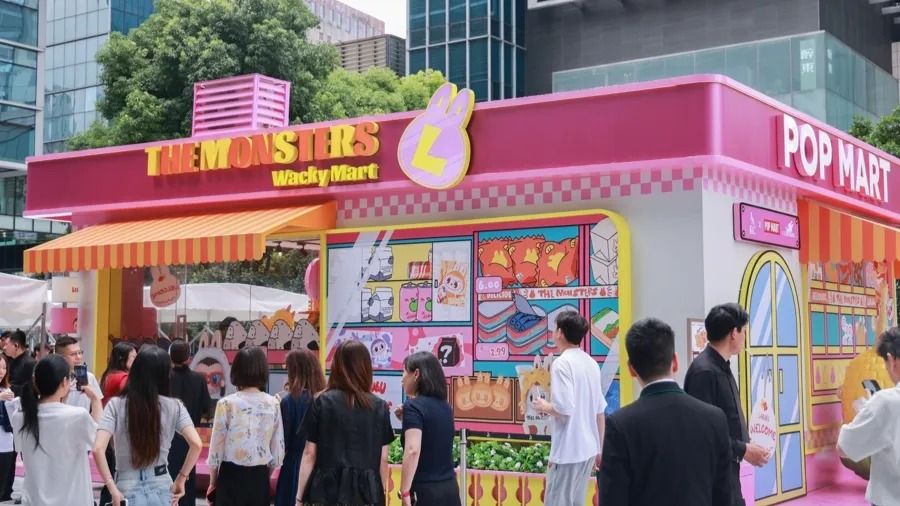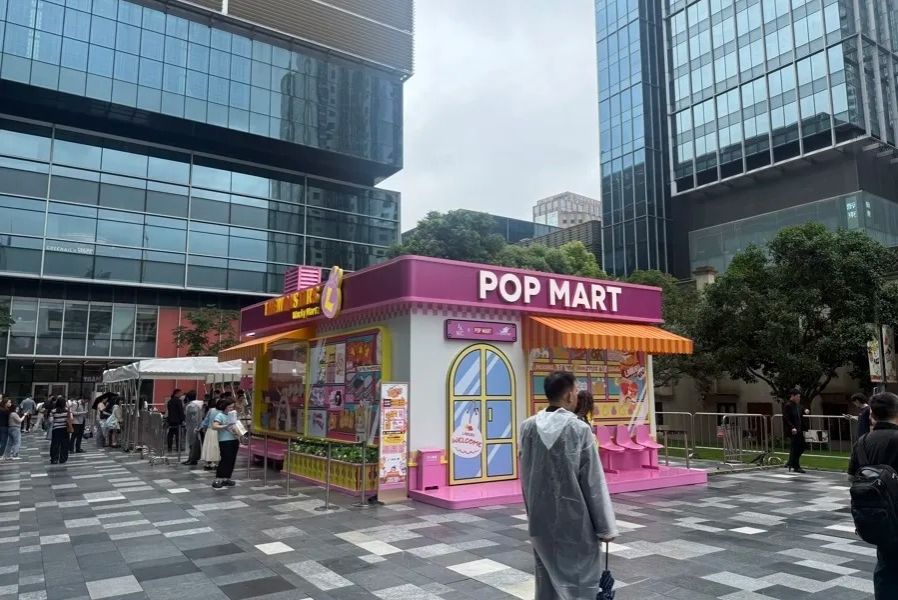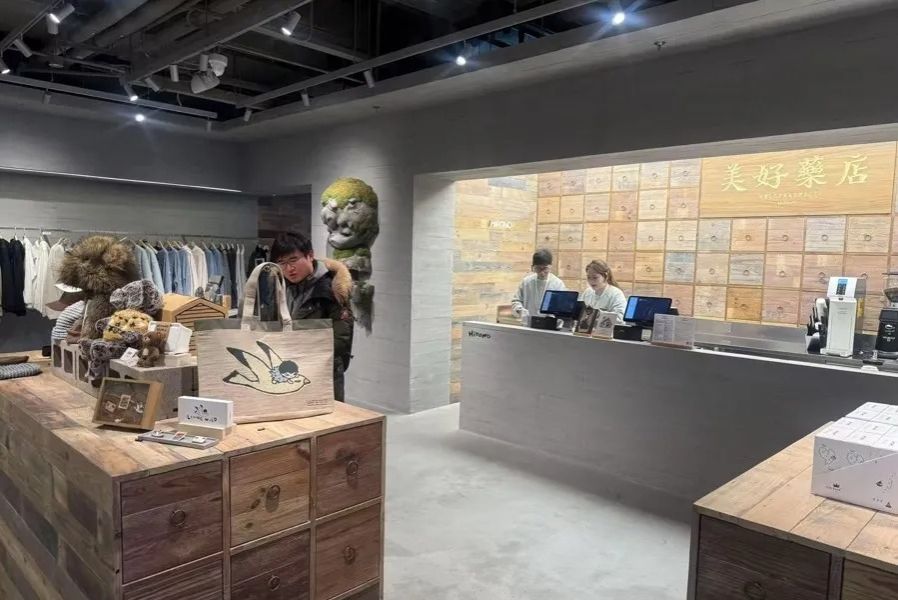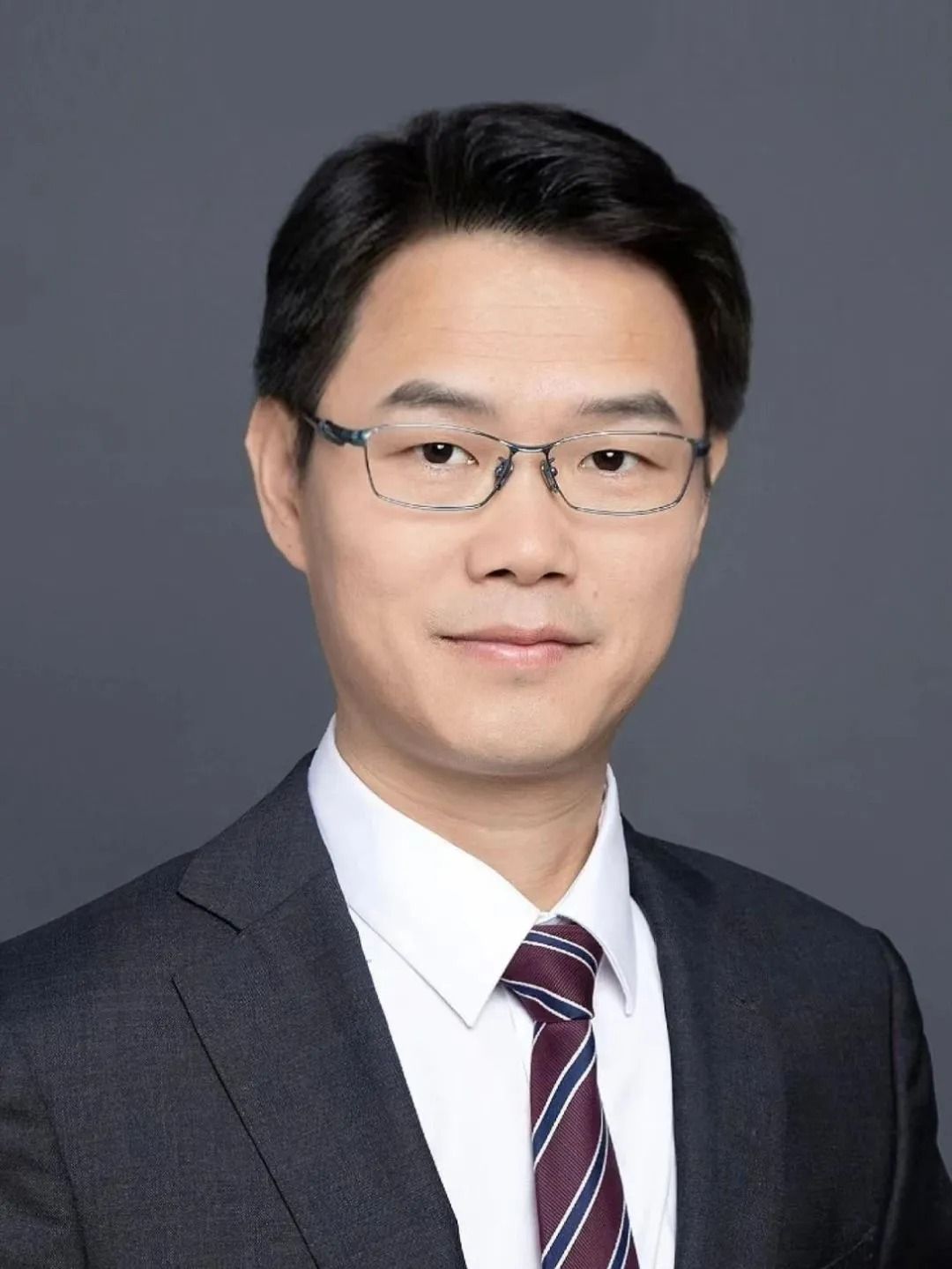Recently, Pop Mart has opened the Pop Mart THE MONSTERS Monster Flavor Convenience Store series pop-up store and its independent jewelry brand "popop" global flagship store in Shanghai on the same day. Why is Pop Mart so popular? How does IP economy drive consumption growth?Professor Wei Feng from the Department of Organizational Management (in preparation) at our school was interviewed by Shangguan News and shared his unique insights on the IP economy in Shanghai.The following is the original report.

Pop Mart, which has swept the globe, has once again chosen Shanghai as the launch site for its new consumer business formats.
On June 13, the East China debut of Pop Mart's THE MONSTERS Monster Flavor Convenience Store series pop-up exhibition landed in the South Plaza of Shanghai Jing'an Kerry Center. On the same day, the global flagship store of Pop Mart's independent jewelry brand "popop" officially opened in Shanghai Hongqiao Henglong Plaza.
Pop Mart has been verifying its path of business innovation in Shanghai step by step and has become the most eye-catching consumer star enterprise recently. Financial report data shows that Pop Mart's total revenue in 2024 reached 13.04 billion yuan, a year-on-year increase of 106.9%.
Why is it so popular? A person in charge of Pop Mart said that long-term investment in IPs is the key: "Deeply exploring the connotation of IPs, developing diversified product models and innovative play methods can be said to be an effective new way for us to explore the value of IPs."
Activating consumption potential through IP economy. With the summer vacation approaching, accompanied by the increase of inbound tourists and the dense holding of anime events, it can be foreseen that Shanghai is about to enter the peak period of IP economy and release a wave of hot consumption momentum.

On June 13, Pop Mart's pop-up store opened in Jing'an Kerry Center. Due to the online appointment system, there were not many people on site. | Ye Yu
Creating "Stars" Has a Secret
With the arrival of the pop-up store, the "concentration" of Pop Mart in Jing'an Kerry Center has increased significantly. The handrails are full of IP images, and there are check-in devices in the corridors. Pop Mart's permanent store also opened in the basement a week ago.
"The consumer groups in the market are becoming more and more differentiated. In the past, many people focused on the practical value of goods when consuming, but the 'Generation Z' grew up with less experience of material shortage, so this group is more willing to pay for emotional value. This is also a phenomenon that will inevitably appear in China's economic development to this extent,"ProfessorWei Feng from the School of Economics and Management of Tongji University believes thatthere has been a great change in the perception of consumption value among different generations, and the new generation has new consumption needs, which has given birth to new consumption modes and products.
Emotional value has become the password of new consumption, but what is unique about Pop Mart? Unlike most domestic blind box companies, Pop Mart focuses on creating its own IPs, signs contracts with artists, and buys out IP images, thus gaining the initiative in IP development. For example, the now popular LABUBU is a result of Pop Mart's contract with designer Long Ka Shing in 2018.

The LABUBU dolls sold in this pop-up store are priced at 199 yuan and need to be purchased online and picked up in the store.
For different IPs, Pop Mart will formulate differentiated development paths that fit their own characteristics and make long-term investments and continuous operations. "The relationship between Pop Mart and IPs is like that between a record company and a singer. The platform treats IPs like stars," a person in charge of Pop Mart introduced. They also tailor songs for IP images like singers; open theme parks offline to let IPs perform on stage; and open exclusive IP accounts on social media platforms to interact with fans. The content such as the elf cheerleading and ZIMOMO big leader dance has been phenomenally spread on short video platforms, greatly increasing the exposure of IPs.
Shanghai has always been regarded as the city with the most intense atmosphere of IP economy in China, such as grains, blind box, and secondary yuan. However, in most brand stores that revolve around IPs, the content is mostly authorized from Japanese and Korean comics. The idea of Pop Mart, which takes the incubation of independent IPs as the core driving force for development, may bring inspiration. Although the buyout and operation of IPs will increase the operating costs of enterprises, in the long run, it can stimulate stronger IP economic vitality. In 2024, four major IPs of Pop Mart had revenues of more than 1 billion yuan, and 13 major IPs had revenues of more than 100 million yuan.
In this regard, Shanghai has the potential and advantages to incubate original IPs. Shanghai has a large number of game companies represented by miHoYo, as well as Bilibili, a national comic production platform. The IP resources are rich and have been exploring the combination of culture, tourism, commerce, sports, and exhibitions under IP empowerment. This year during the "May Day" holiday, miHoYo held the "Star Rail Live" 2025 Star Rail Concert at the Shanghai Oriental Sports Center, which attracted nearly 30,000 gamers from all over the country to "check in" in Shanghai, with an average consumption of more than 3,000 yuan per person in Shanghai.
Cross-Border Innovation Has Confidence
An interesting phenomenon is that in the two newly opened stores of Pop Mart this time, what is sold is not the core products such as blind boxes and figurines. The pop-up store sells derivatives with LABUBU images, such as silicone ice molds, food seal bags, and cushions. The global flagship jewelry store is even more subversive, selling jewelry with popular IPs, with the highest price tag of 2,699 yuan. "This is the inevitable law of IP commercial development,"said Wei Feng. When an IP matures and has market influence, it can continuously develop peripheral products to cover a wider range of consumer fields, fully release its commercial value, and explore additional consumption potential.
For Pop Mart, "cross-border" first realizes the "circle breaking" of customer groups. Middle-aged people can also be seen in the pop-up store. Ms. Ren, 44 years old this year, came with the commissions of two friends and spent 5,000 yuan in just 20 minutes of shopping. The reason is, "I bought it because I think it looks good."
Secondly, stepping out of the "comfort zone" also allows the brand itself to undergo an upgrade. In March of this year, POP MART launched Hirono Xiao Ye's first global flagship concept store at Central Plaza in Shanghai, expanding into categories such as apparel and home goods. The brand also set up Xiao Ye pop-up stores in major cities worldwide, elevating its trendy toy IP into a lifestyle brand. This initiative generated revenue of 730 million yuan, a year-on-year increase of 106.9%, accounting for 5.6% of POP MART's total revenue.

The world's first Hirono Ouno brand concept store, located at Shanghai's Central Plaza, sells clothing, home goods, and more. | Photo by Ye Yu
But ultimately, the fruits of innovation require fertile soil to thrive. A representative from Pop Mart noted that Shanghai is the ideal proving ground for IP-driven economies to explore diversified development paths: "Shanghai is an open, inclusive, and cosmopolitan hub of trends. It embraces diverse cultures, demonstrates commercial foresight, and fosters an environment that encourages business innovation—from individual shopping districts to the broader business ecosystem." The fact that Pop Mart’s first jewelry store has settled in Plaza 66’s Grand Gateway Mall is itself the best example. Shanghai dares to approach new consumption with a forward-looking vision, nurturing the growth of local IP economies and enabling them to compete on the same stage as international brands.
This path of innovation also applies to the transformation of traditional consumer formats. By embracing IP culture, Shanghai can inject new value into existing business models and unlock fresh consumption potential. The once-struggling Joy City in Jing’an District has successfully reinvented itself as a youth-centric retail benchmark in recent years by leveraging IP pop-ups and "guzi" (merchandise) stores catering to anime culture, driving a 28% year-over-year increase in foot traffic in 2023. Similarly, the YouMix Lifestyle Plaza in Wujiaochang was revamped into a subculture-themed commercial complex—ZX Zaoqu Market—at the end of last year. During this year’s May Day holiday, it saw explosive performance, with foot traffic surging 205% and sales volume jumping 190% year-over-year.
International Consumption with Gravitational Pull
In fact, Pop Mart has not only launched pop-up stores in major domestic cities like Shanghai but has also frequently organized pop-up events in international metropolises in recent years, rapidly increasing LABUBU's global exposure. Experts note that the emotional value embedded in IPs facilitates cross-cultural communication more easily, helping Pop Mart gain recognition among overseas consumers and turning these Chinese dolls into popular cultural commodities worldwide. Today, from Thai superstar Lisa’s adoration for LABUBU to global icon Rihanna accessorizing her bag with a LABUBU charm, LABUBU has amassed millions of discussions on TikTok, taking the world by storm.
This also provides new insights for Shanghai’s ambition to become an international consumption hub. Just as movie fans pilgrimage to Hollywood, Shanghai, as a key business stronghold for Pop Mart, is attracting an increasing number of international "fans" who travel to the city to shop. Shanghai is home to Pop Mart’s first global flagship store, over 40 physical stores, and serves as the launchpad for new formats like pop-up stores and jewelry shops. This year, about one-third of the daily foot traffic at Pop Mart’s global flagship store consists of foreign visitors, including those from Asian countries like Japan, South Korea, Singapore, Malaysia, and Thailand, as well as travelers from visa-exempt nations such as the U.S. and Luxembourg.
Zooming out to the global trendy toy market, Shanghai has even greater potential to explore. According to Frost & Sullivan data, the trendy toy market reached $44.8 billion in 2024, with China, the U.S., Japan, and South Korea accounting for 75% of the share. Nanjing Road, already a mecca for anime and pop culture in Shanghai, has also felt the surge in overseas spending. Huang Jiayi, the manager of GLAMBOX—a store in the World Trade Mall selling food-themed toys and anime merchandise—observed a noticeable increase in foreign customers, now making up 30% to 40% of total visitors. Encouraging international consumers to pay for Chinese cultural products has become a new growth driver in Shanghai’s quest to establish itself as a global consumption hub.

Nanjing Road Pedestrian Street has seen booming dimensional economy in recent years. Photo by Haischaer
Various policies are also providing strong support for this. Shanghai has consistently ranked first in the country in terms of tax refund scale for overseas visitors, and its international appeal has always been a defining feature of its consumer market. At the end of April this year, China further optimized its tax refund policy for overseas visitors by raising the cash refund limit to 20,000 yuan and lowering the minimum purchase threshold from 500 yuan to 200 yuan, further stimulating the shopping demand of inbound tourists. Shanghai’s consumer businesses quickly benefited from this policy boost. In the first month after the new policy took effect, tax refund sales in Shanghai surged by 86% year-on-year.
With more inbound tourists visiting Shanghai, the explosive popularity of Pop Mart is just the beginning. This summer, Shanghai will also host a series of anime and pop culture events such as CCG EXPO, BilibiliWorld, and ChinaJoy, which are expected to attract a large number of domestic and international visitors. The IP economy is likely to experience a small peak during this period. "With multiple factors coming into play, the IP economy in Shanghai this summer should reach even greater heights,"said Wei Feng.
Professor Profile

Wei Feng:Professor at the Department of Organization and Management (under preparation), Tongji University School of Economics and Management; Director of the Global Innovation and Chinese Entrepreneurship Institute; Director of the Organization and Human Resources Research Institute; and Director of the Organization and Management Research Center.
Graduating from the School of Management at Fudan University, he previously served as a researcher at the Cheung Kong Graduate School of Business and CEIBS. Multiple teaching cases he developed have been included in the CKGSB Case Library, the China Business Management International Case Library, and the China Management Case-Sharing Center.
An author of ESI Highly Cited Papers and Hot Papers, his research has been published in top-tier Chinese and English journals such asManagement World,Journal of Management Science,Academy of Management Journal, andJournal of Management Studies, and has been covered by international media outlets includingScience Daily,Medical Xpress,Eurasia Review,Mirage News, andThe Pakistan Post.
He has received numerous awards, including the Shanghai Outstanding Teaching Achievement Award, the Shanghai Outstanding Achievement Award in Philosophy and Social Sciences, the National Top 100 Excellent Management Cases, and the Outstanding Teaching Achievement Award from the China Human Resource Development Research Association.
Research Areas:Entrepreneurial teams, executive teams, leadership.